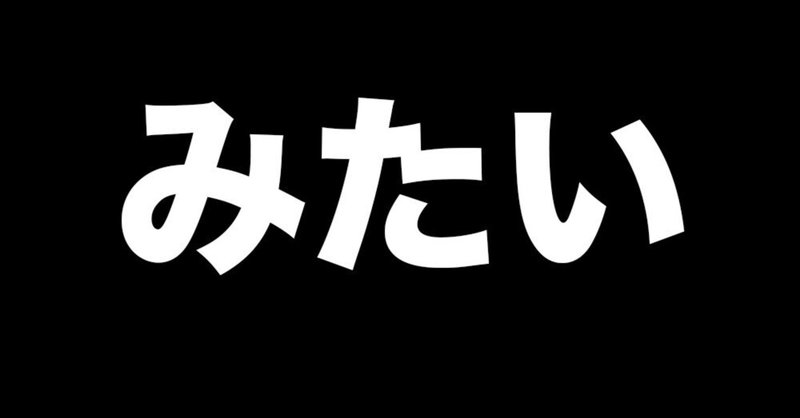
みたい
"みたい" is used to express similarity, comparison, or metaphor.
彼みたいな御曹司が私を好きになるはずがない。
かれみたいなおんぞうしがわたしをすきになるはずがない。
There's no way a scion like him would fall in love with someone like me.
彼女は子供みたいによろこんだ。
かのじょはこどもみたいによろこんだ。
She was delighted like a child.
It is also used to express conjectures based on observation.
朝から一言も話さないので、彼は機嫌が悪いみたいだ。
あさからひとこともはなさないので、かれはきげんがわるいみたいだ。
He hasn't said a word since morning, so it seems like he's in a bad mood.
彼女の演奏を聞く限り、今日の調子は良いみたいだ。
かのじょのえんそうをきくかぎり、きょうのちょうしはよいみたいだ。
Judging from her performance, it seems like she's in good form today.
It is also used to express hearsay.
先生が言ってたけど、彼は今日は風邪で授業に来れないみたいだ。
せんせいがいっていたけど、かれはきょうはかぜでじゅぎょうにこれないみたいだ。
The teacher said that it seems he can't come to class today because of a cold.
天気予報によると、来週からとても寒くなるみたいです。
てんきよほうによると、らいしゅうからとてもさむくなるみたいです。
According to the weather forecast, it seems it's going to get very cold from next week.
It is also used after a verb to express the desire to try something not yet experienced.
日本に行って、京都のお寺を見てみたいです。
にほんにいって、きょうとのおてらをみてみたいです。
I want to go to Japan and see the temples in Kyoto.
マカオに行って、バンジージャンプをしてみたいです。
まかおにいって、ばんじーじゃんぷをしてみたいです。
I want to go to Macau and try bungee jumping.
この記事が気に入ったらサポートをしてみませんか?
